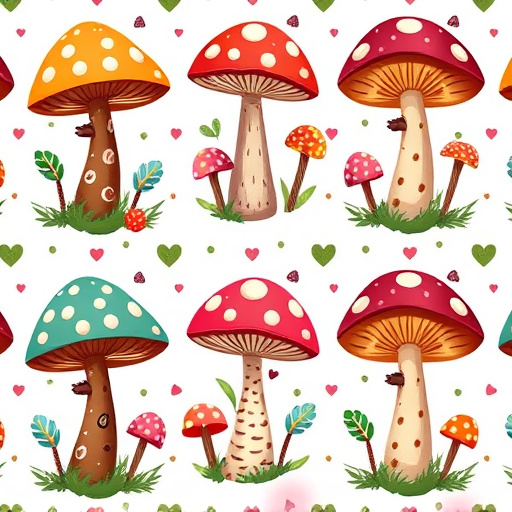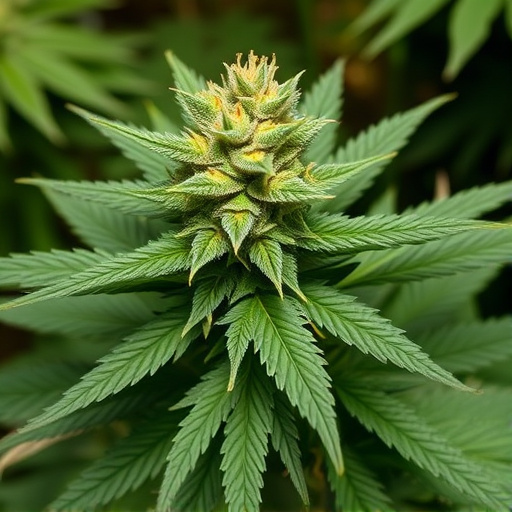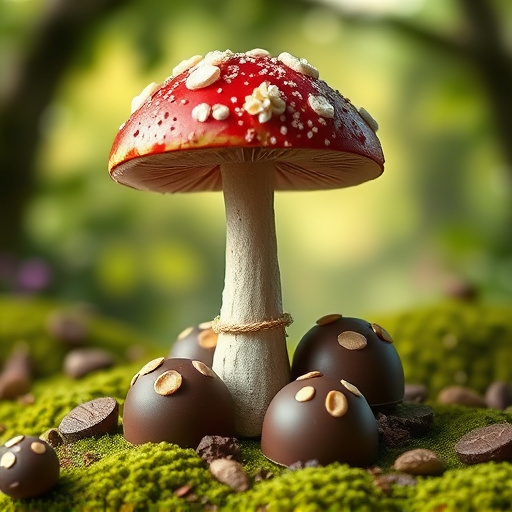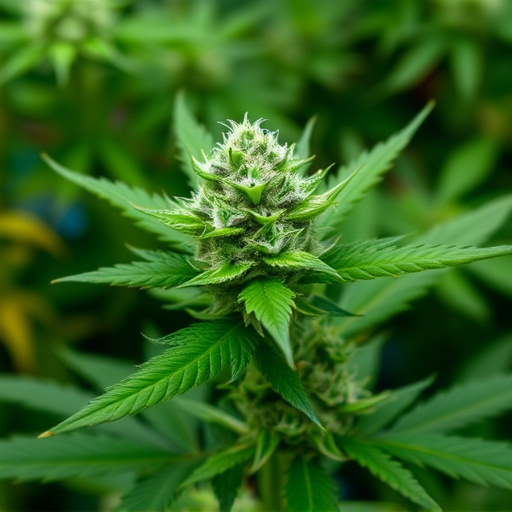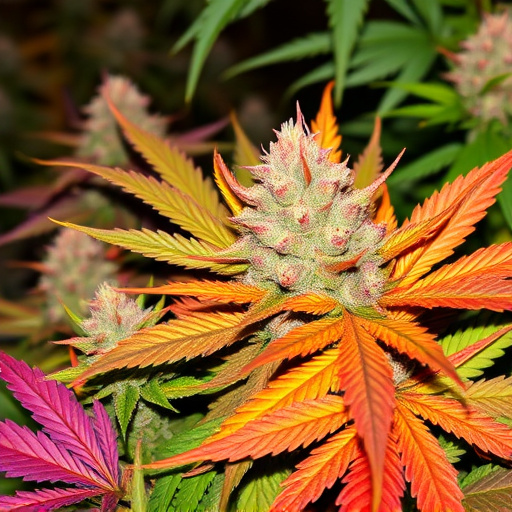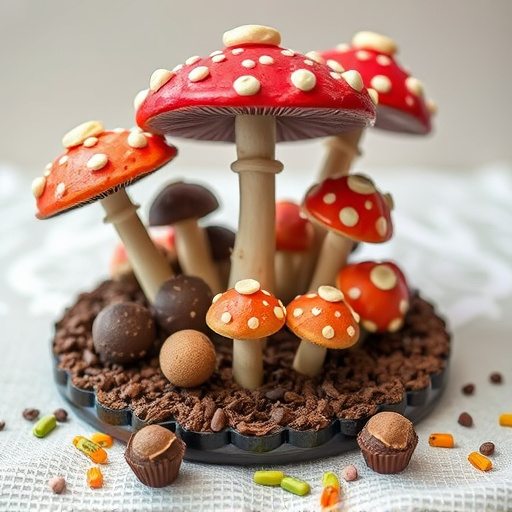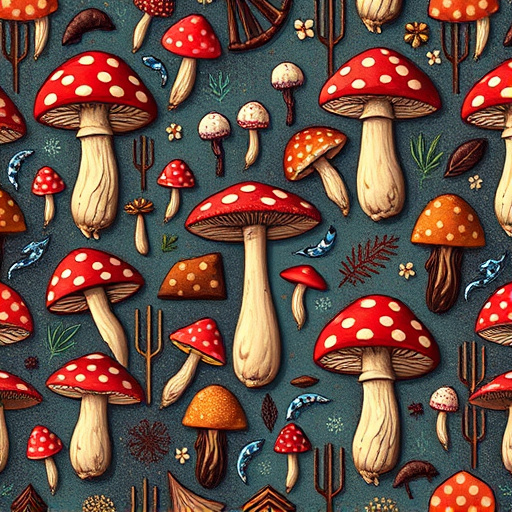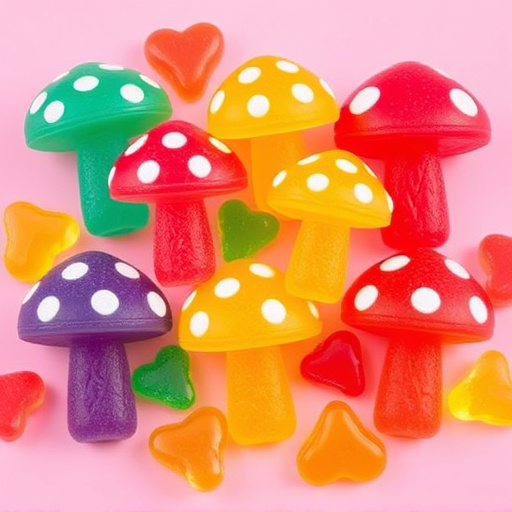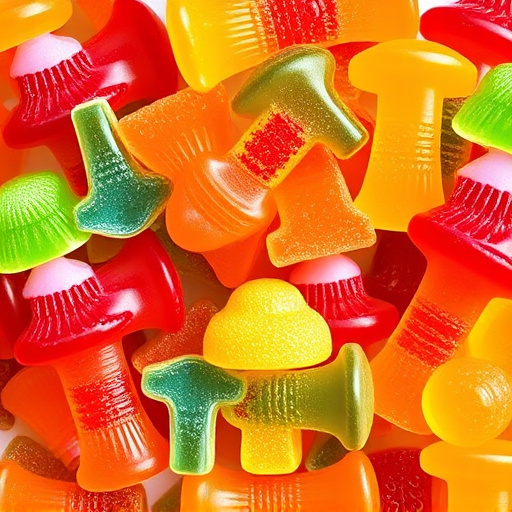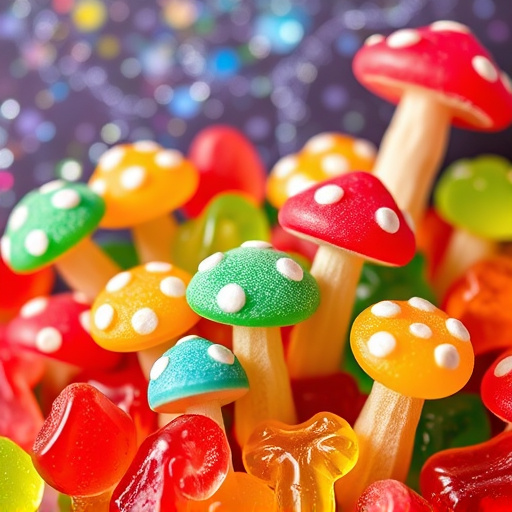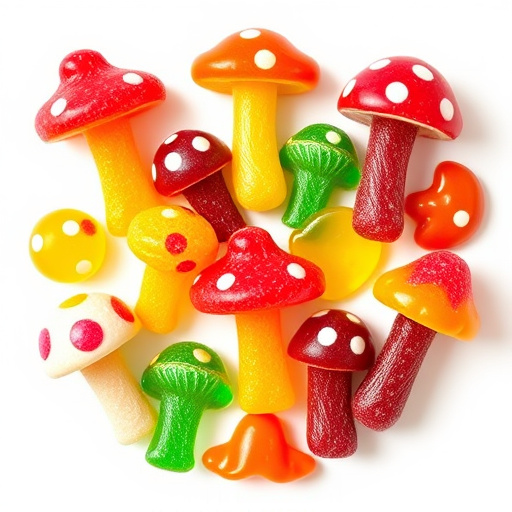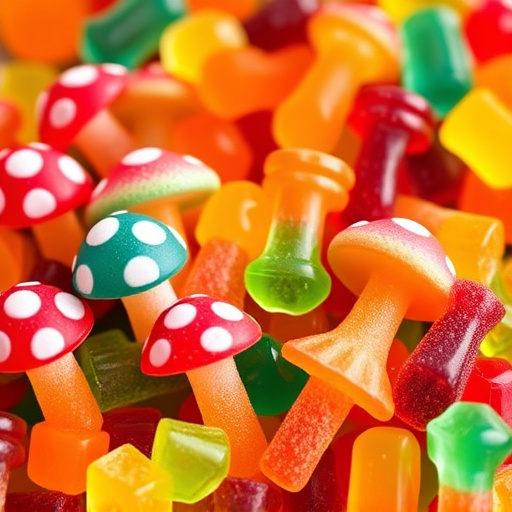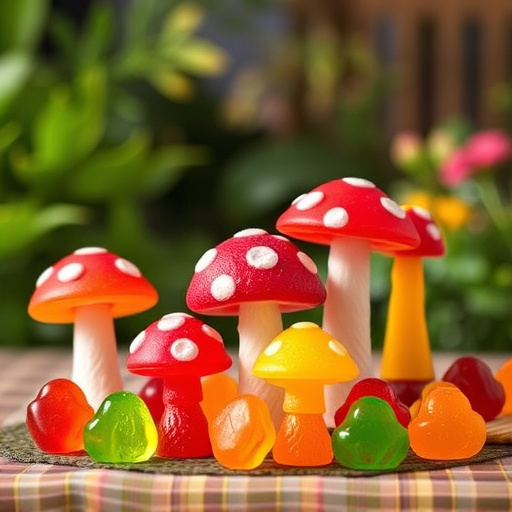Magic Mushroom Gummies represent a modern psychedelic therapy approach with potent psilocybin extracted from mushrooms in easy-to-consume gummy form. They enhance brain plasticity by altering neural connections, promoting cognitive flexibility and creativity for potential treatment of depression, anxiety, and PTSD. Brain plasticity is key to understanding the gummies' effects, offering novel therapeutic applications while balancing risks and legal restrictions; thorough research and consultation with healthcare professionals are essential before use.
“Unveiling the potential of Magic Mushroom Gummies in a modern context, this article explores an intriguing intersection of ancient botanicals and contemporary wellness trends. We delve into the brain plasticity benefits associated with psychedelics, shedding light on why Magic Mushroom Gummies are gaining attention. This comprehensive overview examines their composition, scientific backing, and potential advantages while considering important factors for responsible use. Discover how these innovative treats might contribute to a deeper understanding of mental flexibility.”
- Understanding Magic Mushroom Gummies: A Comprehensive Overview
- The Science Behind Brain Plasticity and Its Relationship with Psychedelics
- Potential Benefits and Considerations for Using Magic Mushroom Gummies
Understanding Magic Mushroom Gummies: A Comprehensive Overview
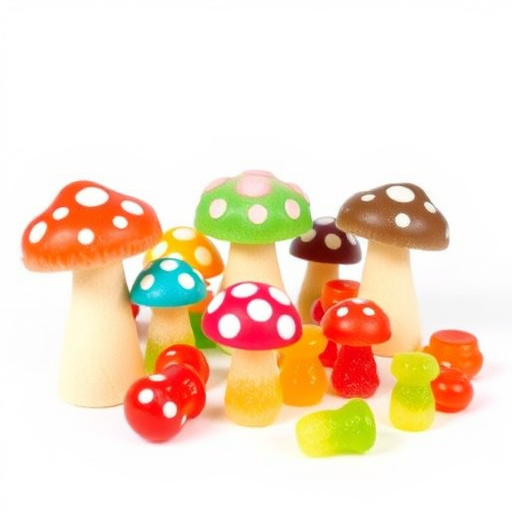
Magic Mushroom Gummies represent a modern twist in psychedelic therapy, combining the potent effects of psilocybin mushrooms with the convenience and discretion of gummies. These edibles contain extracted psilocybin, the active compound found in magic mushrooms, offering a controlled and measurable dose. Unlike traditional mushroom consumption, gummies provide an easy-to-consume format, making them appealing to those seeking alternative psychological experiences or therapeutic interventions.
The potential impact on brain plasticity is one of the most intriguing aspects of Magic Mushroom Gummies. Brain plasticity refers to the brain’s ability to reorganize itself by forming new neural connections. Psilocybin, when administered in controlled settings, has been shown to enhance neuroplasticity, leading to profound and lasting changes in perception, thought patterns, and emotional resilience. This quality makes magic mushroom gummies a focus of interest in mental health research, exploring their potential in treating conditions like depression, anxiety, and post-traumatic stress disorder (PTSD).
The Science Behind Brain Plasticity and Its Relationship with Psychedelics
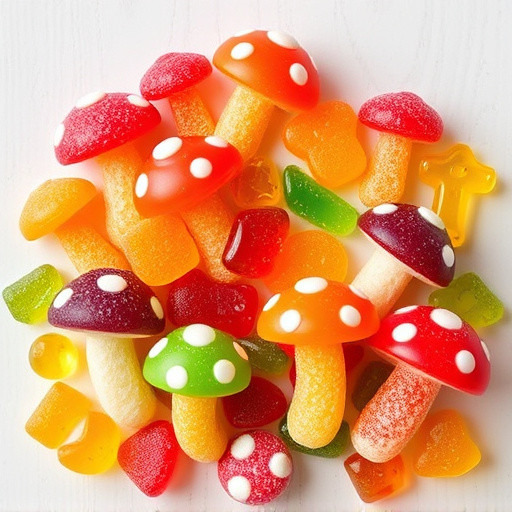
The human brain is a complex organ with an astonishing ability to adapt and reorganize itself, known as brain plasticity. This concept plays a pivotal role in understanding the effects of psychedelics like those found in magic mushroom gummies. When individuals consume these unique substances, they induce a temporary alteration in neural connections, fostering an environment conducive to neuroplasticity.
Research suggests that psychedelics can facilitate the growth and strengthening of new neural pathways, leading to enhanced cognitive flexibility and creativity. This phenomenon is particularly intriguing when considering the potential therapeutic applications for magic mushroom gummies in various mental health treatments. By tapping into the brain’s plasticity, these compounds might offer novel solutions for conditions like depression, anxiety, and PTSD, providing a fresh perspective on mental well-being.
Potential Benefits and Considerations for Using Magic Mushroom Gummies
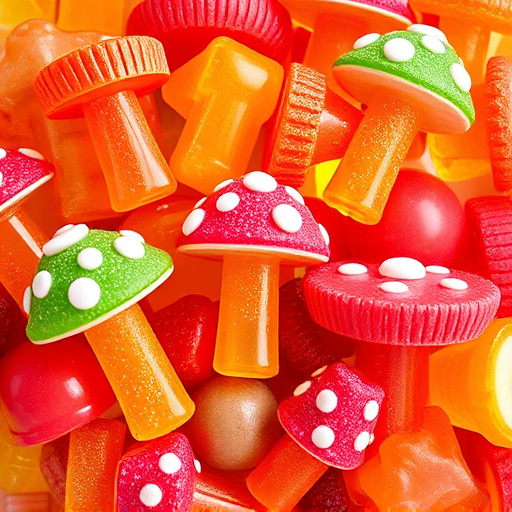
Magic Mushroom Gummies offer a novel approach to exploring potential therapeutic benefits, particularly in the realm of brain plasticity. Brain plasticity refers to the brain’s ability to adapt and change throughout life, allowing for the formation of new neural connections and the strengthening of existing ones. Research suggests that certain compounds found in magic mushrooms can enhance this process, potentially leading to improvements in mood, cognitive function, and mental resilience.
When considering Magic Mushroom Gummies, it’s essential to weigh both the promising benefits and potential risks. While some users report profound emotional experiences and heightened creativity, these gummies are not without their controversies. The effects of psilocybin, the active compound in magic mushrooms, can be unpredictable, and individual responses vary greatly. Additionally, the legal status of magic mushroom products is a significant consideration, as they remain illegal in many regions. As with any substance, proper research, dosage awareness, and consultation with healthcare professionals are crucial before incorporating Magic Mushroom Gummies into one’s wellness routine.
Magic mushroom gummies, as a modern interpretation of psychedelic therapy, offer an intriguing avenue for exploring brain plasticity. The scientific understanding of neuroplasticity’s role in healing and learning provides a compelling case for the potential benefits of magic mushrooms and their gummy formulations. While further research is essential to fully comprehend their effects, initial studies suggest that these compounds could aid in treating mental health disorders, fostering creativity, and enhancing overall well-being. As with any psychedelic substance, responsible usage and access through regulated channels are paramount to maximizing the advantages while mitigating risks.
